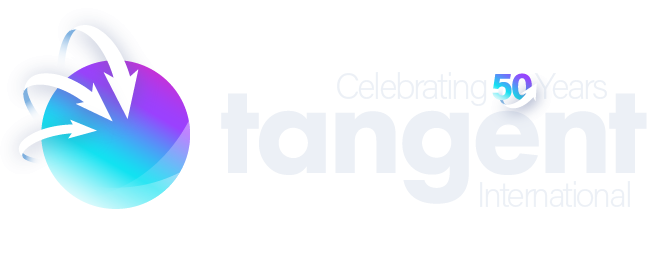Global EMR Vendors: Shaping the Future of Healthcare
September 25, 2024
As healthcare undergoes a rapid digital transformation, Electronic Medical Record (EMR) solutions have become the backbone of modern medical systems. These technologies are crucial for improving patient care, operational efficiency, and data management—key components of today’s healthcare industry. With the rise of data-driven healthcare, the global EMR market is evolving and key vendors are at the forefront of this transformation. But they’re not just providing EMR platforms—they’re shaping the future of how care is delivered and managed. Here’s a look at some of the leading EMR players and their strategies for the future:
Epic Systems
Epic is one of the most dominant players in both the U.S. and international markets. Its focus is on interoperability, primarily through its Care Everywhere platform. This technology enables seamless data exchange across different healthcare providers, ensuring that patient information is easily accessible wherever care is provided. Epic is also investing in AI-driven analytics, which are set to revolutionize predictive care and personalized medicine. With AI, healthcare providers can anticipate patient needs and deliver customized treatments based on data insights, improving outcomes and reducing unnecessary interventions.
Cerner (Now Part of Oracle Health)
Cerner, now integrated into Oracle Health, envisions creating a cloud-based healthcare ecosystem. This shift to the cloud is designed to enhance scalability, data security, and overall system performance. By leveraging Oracle’s cloud infrastructure, Cerner is working on expanding its population health management tools, which allow providers to manage large groups of patients more effectively. Expect Cerner to introduce innovations in patient engagement through digital tools and healthcare automation, helping healthcare organizations streamline workflows and improve patient outcomes.
Allscripts
Allscripts is pushing the idea of open platforms and integrated solutions, aiming to create a more flexible healthcare system. Their emphasis on cloud adoption and the development of mobile-first solutions reflects a growing trend towards healthcare beyond hospital walls. With a focus on AI and predictive analytics, Allscripts is committed to reducing clinician burnout by automating routine tasks and improving clinical decision-making through advanced data insights. This approach enhances efficiency and ensures better care delivery.
Philips Healthcare
Philips is integrating its EMR solutions with remote patient monitoring and telehealth—a critical move in a world that’s seeing a rise in chronic conditions and remote care needs. Philips’ expertise in medical devices is giving it a unique edge, enabling healthcare providers to monitor patients in real-time and deliver proactive care. Philips is particularly focused on AI-powered solutions that can assist in chronic disease management, ensuring early intervention and improved long-term health outcomes for patients.
GE Healthcare
GE Healthcare’s approach is centered on enhancing EMR systems through data integration with medical devices like imaging systems. This integration is crucial for hospitals where diagnostics play a key role in treatment plans. By investing in AI and machine learning, GE is helping clinicians gain deeper insights from patient data. The future of GE’s EMR systems will likely involve even more advanced predictive analytics, assisting healthcare providers in identifying potential health issues earlier.
Meditech
Meditech is pushing forward with its cloud-based Expanse EMR solution. Meditech’s strategy focuses on enhancing interoperability—an essential feature for rural hospitals and international healthcare systems, which often struggle with fragmented data. The company’s future roadmap includes leveraging real-time data to support patient-centered care. Meditech’s Expanse platform enables healthcare providers to deliver efficient, informed care through access to up-to-the-minute patient information.
What’s Next for the EMR Industry?
The future of EMR technology is rapidly evolving, driven by several key trends:
- 📈 Cloud-Based Solutions: Cloud adoption will continue to grow, offering greater flexibility, scalability, and enhanced data security for healthcare systems worldwide.
- 🧠 AI and Machine Learning: The integration of AI will enhance predictive analytics, allowing for more personalized and precision medicine, improving patient care while reducing healthcare costs.
- 🔄 Interoperability: As healthcare becomes more connected, interoperability will be essential for integrating data across regions and care networks, ensuring seamless communication between different systems and providers.
- 🌐 Global Expansion: With a focus on expanding into emerging markets, vendors are working to ensure that quality healthcare is accessible globally, regardless of geography or healthcare infrastructure.
As these vendors continue to evolve and innovate, the future of healthcare will be increasingly shaped by how well we can leverage EMR technologies to deliver patient-centered, data-driven, and value-based care. The question now is, how are healthcare providers preparing for this digital revolution?
Let’s connect and explore how these solutions can shape healthcare across the globe. 🌍💡 Contact: Luke
#EMR #HealthTech #DigitalTransformation #HealthcareInnovation #Interoperability #AIinHealthcare #CloudHealth #FutureOfHealthcare #PatientCare

All content copyrighted Tangent International © All rights reserved. Recruitment Website Design - RecWebs
